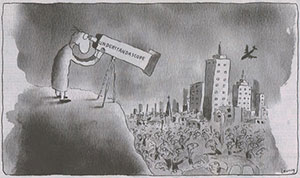The nature of the adversarial political process results in a number of people with specialist expertise and management talent not making themselves available for senior office.
It is often commented that one advantage of the US system is the capacity of the President to draw respected people of achievement and talent and appoint them to senior roles. As one example, the role of Secretary of Defence is not filled by an elected representative, rather, by nomination by the President – with the recently retired Robert Gates a notable example of an appointment who served until both Republican and Democratic presidents and as a result was viewed by many as ‘above the politics’.
Advantages of this Reform
A large scale “reshuffle” of all ministerial level roles is not required where there is a public/ political need to remove a minister from their current area of responsibility. Furthermore, the public earns access to the capacity of people of experience who choose not to contest public elections, but who may be more effective managers of specialised policy areas than those whose key skill is public advocacy. Importantly, in day to day performance of the role, the public has individuals who are not directly required to engage in partisan adversarialism, nor do they have the “management overhead” of serving a local electorate, a requirement for fundraising or a focus on re-election.
Arguments Against this Reform
There is an element of the aristocratic in any form of appointment, and care needs to be taken to ensure checks and balances in the appointment process. A secondary concern is to ensure careful separation with the donor process to ensure there is no possible inference that one is able to ‘buy’ office.
One of the strongest arguments against executive appointment surrounds the position of Henry (Hank) Paulson as Secretary of the Treasury following roles at Goldman Sachs as Chairman and CEO, who was then called on to make decisions directly affecting the organisation he previously led.
Background and Origins
The appointment of roles by the President of the United States (with confirmations by the Senate) is the most visible and longstanding example of the practice.
Questions for Further Study
The key question to be researched is one of public trust and confidence across a range of systems. Issues of competence and effectiveness in specific roles are considered so highly subjective as to be inappropriate to credibly measure – however, public confidence and trust are good surrogate/ secondary indicators of efficacy in a public role.
What You Can Do
As with the other reforms in this section, this reform requires a measure of public advocacy. It is considered that this could also be credibly trialled at a local government level – in which case interested citizens can work with the Foundation to approach their Council.
Clarifications
None yet requested.
Further Readings
- Vaughn, J. & Otenyo, E. Managerial Discretion in Government Decision Making : Beyond the Street Level Jones and Bartlett Publishers, 2007. Buy it online (Free Shipping Worldwide)
 Image credit:
Image credit:
Ujino Muneteru
The Rotators, 2005
Mixed media installation with home appliances, electric guitar, dimensions variable
Courtesy of the artist and Mizuma




